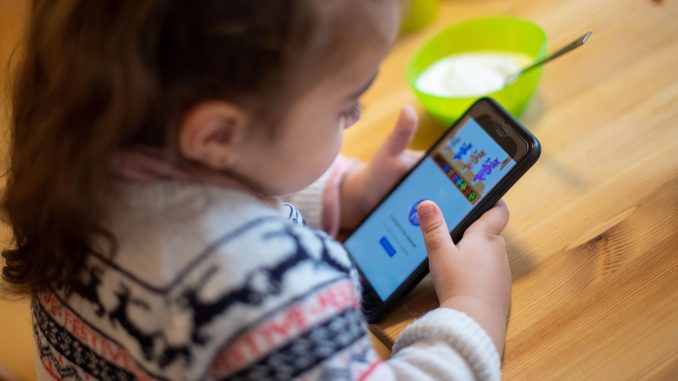
Commentary: The platform incites feelings of jealousy and inferiority that would be detrimental to young minds. It’s a tough enough battle as an adult.

Reports last week revealed that Instagram is planning to launch a platform for kids under 13, with executives reportedly saying they’ve “identified youth work as a priority” for the photo sharing app. Already, child advocates have sounded the alarm, saying the Facebook-owned site “will be harvesting children’s data and profiting off their detailed profiles.”
These advocates have good reason to be concerned.
As a 27-year-old millennial, I’m part of the final generation to grow up before social media dominated our lives. My childhood was free of Facebook, Twitter and Instagram, and the pressures that come with “being online.” I’m not convinced children should be burdened with that pressure.
When I joined Instagram as a sophomore in college, I was simultaneously drawn in and intimidated by the attention to detail and aesthetics. Every shot on the site, from outfits to beach getaways, looked polished and refined. I slowly found my footing and became addicted to the acknowledgement received by my own ensembles and my artsy shots in cafes.
Thankfully, by the time I’d joined Instagram in 2013, I was old enough to understand what I was sharing and consuming. I knew filters and Photoshop were at play in most images, and that I therefore shouldn’t compare myself to them. By that point, I’d battled through most of my insecurities and grown comfortable with the way I looked. Those were things I came to terms with on my own, without some influencer telling me how I should dress or what fashion or makeup “mistakes” to avoid.
The bygone days of privately “figuring it all out” have been replaced by an online culture of oversharing. Experiences both mundane and memorable are regularly photographed and shared in the pursuit of public approval and acknowledgement. The already-difficult search for a sense of identity and purpose as a young person has been exacerbated by the pressures of online popularity. Jealousy extends beyond the real world into the digital, making it inescapable.
These are challenges that have consumed today’s adults and teenagers, who, unlike me, experienced Instagram’s reign during their middle school and high school years. But they could soon extend to an even younger demographic, with an Instagram platform for kids. A Facebook representative told CNET that the social network is “working on building additional products … that are suitable for kids, managed by parents.”
Advocacy groups and lawmakers have long criticized Instagram and parent company Facebook for harboring harmful content and fostering anxiety and depression, particularly among younger audiences. A 2017 report by the UK’s Royal Society for Public Health found that Instagram is the worst social media platform for young people’s mental health. Some studies have also found that social media platforms can indirectly take a toll on users by increasing their exposure to bullying and cutting back on their sleep and exercise.
Imagine how harmful it would be, then, for kids to have even earlier exposure to an Instagram-like platform, before they’ve been taught that every FOMO-inducing hangout or picture-perfect vacation tells only part of the story of someone’s life. Children are more susceptible to believing what they see and hear, and will likely have a harder time distinguishing reality from polished, filtered images. They’ll likely begin to question their worth — something common among social media users — at a dangerously early age.
During a congressional hearing with the CEOs of Facebook, Google and Twitter on Thursday, lawmakers raised concerns about the impact social media can have on children. “Big tech is essentially handing our children a lit cigarette and hoping they stay addicted for life,” said Rep. Bill Johnson, a Republican from Ohio. During the hearing, Facebook CEO Mark Zuckerberg refuted claims that the company’s products harm children but acknowledged there are issues that need to be sorted out, such as “how people can control the experience of kids.”
There’s also the threat of misinformation, which has run rampant on sites like Instagram and Facebook. Time and again, Facebook has demonstrated its shortcomings when it comes to tackling false content on elections, health misinformation and other dangerous posts.
Though an Instagram platform for children would likely filter out certain content, social media sites have a track record of letting harmful posts slip through the cracks. In 2019, US lawmakers raised concerns after Facebook app Messenger Kids, which lets users between 6 and 12 communicate with people approved by parents, experienced what Facebook said was a “technical error” that let thousands of children join group chats with unapproved users. And in 2017, YouTube came under fire after reportedly allowing troubling videos to get past filters on its family-friendly platform, YouTube Kids.
The launches of these kid-focused platforms have understandably led parents and child health advocates to raise concerns about threats to children’s online privacy. The launch of an Instagram for kids would not only be another potential threat to privacy, but it also could send children into the kind of spiral I’ve struggled to break out of multiple times, even as an adult.
I’m constantly at war with Instagram. Being off the site makes me feel better about myself, but if I stay off too long, I get FOMO (aka fear of missing out). In a world where our lives increasingly take place online, it feels important — critical, even — to be digitally connected to friends and family. I regularly fight feelings of inferiority as I scroll through images of lavish vacations and seemingly perfect relationships, and yet I can’t look away. I constantly feel the need to let the world know that I, too, have something to show for myself through my own posts and images.
My friends and I frequently take breaks from Instagram because we know the toll it’s taking on us, but we always go back. It’s an addiction. Social media has also changed the way we think about what we do. We go to cafes with overpriced food that’ll look good online. We prioritize looking for that Instagrammable beach shot on vacations. Kids shouldn’t be introduced to that lifestyle at such an early age. They should be focused on enjoying experiences for what they are and being themselves, rather than giving off a certain image.
This reality is inescapable. There’s no point in wishing for a society free of social media, because it’s here to stay. But why should we rush children into a world that thrives on comparison, packed with strangers telling them what they need to be or how they should look?
It’s unclear what this rumored Instagram for kids might look like. But if it’s anything like its famous counterpart, I’ll worry about children who’ll have to battle against the same feelings of inferiority I’ve experienced, but without that foundation of identity, self-worth and confidence I’ve worked hard to build up over the years. Because even with that foundation, it’s still a constant struggle to stay afloat.
